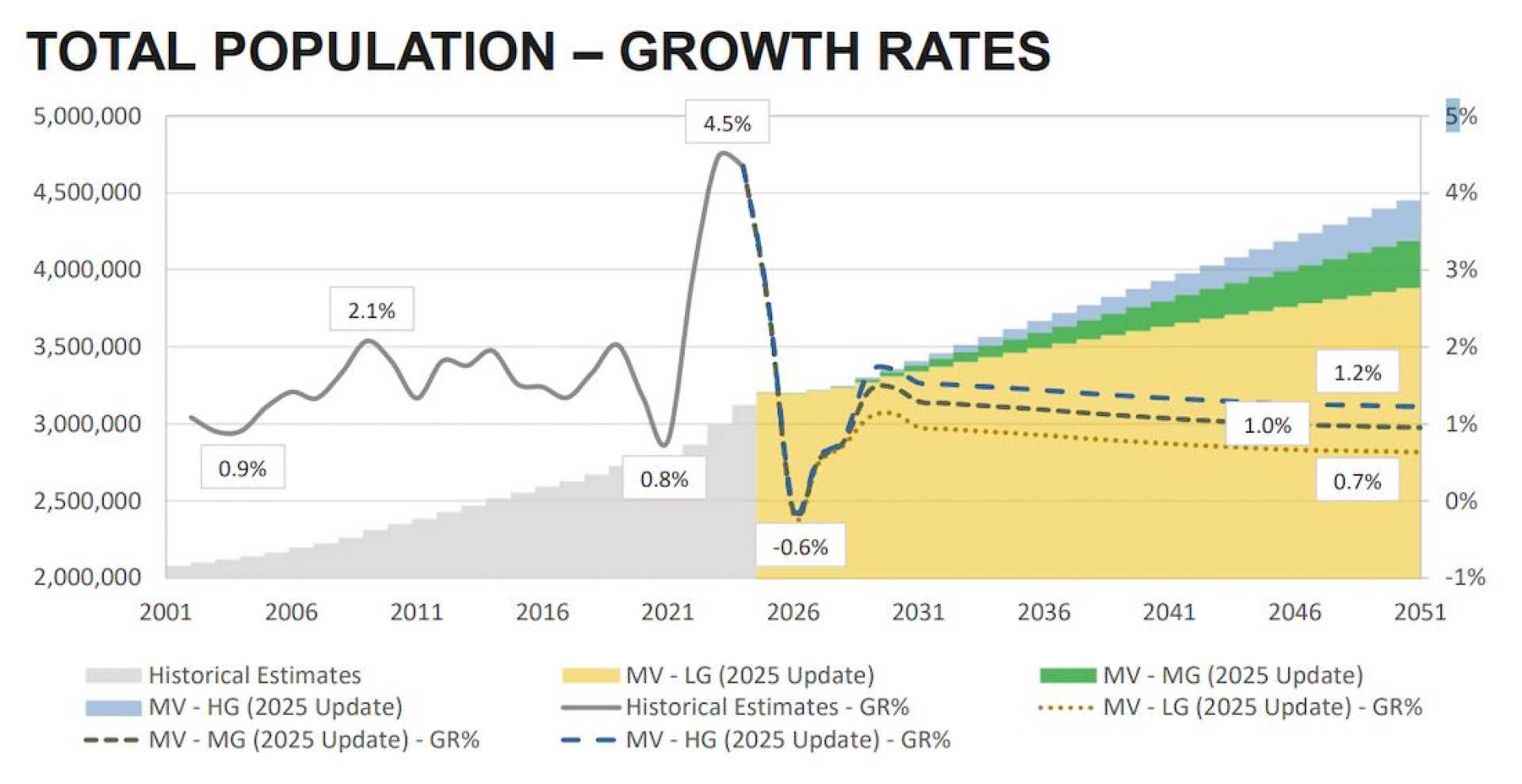News
Metro Vancouver Reduces Growth Forecast Amid Immigration Policy Cuts

VANCOUVER, British Columbia — Metro Vancouver is experiencing slower population growth than previously estimated due to recent federal immigration policy changes, according to a new report released on Thursday.
The regional district now estimates that the area will see an average increase of 42,500 new residents each year, bringing the total population to about 4.1 million by 2050. This marks a significant decline from last year’s forecast of 50,000 newcomers annually.
Officials attribute the downward revision to federal immigration targets being reduced for 2025 to 2027, alongside new restrictions for non-permanent residents. Andy Yan, director of Simon Fraser University‘s City Program, highlighted that international migration continues to be a key factor in long-term growth, contributing to 90 percent of the population increase expected through 2051.
“This isn’t necessarily unanticipated, given the changing policies concerning international migration,” Yan said. “However, the expected downturn in migration opportunities may lead some newcomers to reconsider their choices.”
The cuts to immigration are already impacting local support organizations. Vancouver’s Collingwood Neighbourhood House reported the loss of 20 employees due to federal funding reductions, putting programs that assist newcomers at risk.
Amid these changes, British Columbia has also faced its population decline, with a recent report indicating it suffered the largest quarterly loss since 1951, according to Statistics Canada. The federal government has now set a cap on temporary residents, aiming to limit their share of the Canadian population to five percent by 2026.
Surrey Board of Trade CEO Joslyn Young remarked that a slower growth forecast does not lessen the necessity for increased business investment, as labor shortages and rising costs still pose challenges for employers.
“We need to prioritize housing supply and infrastructure to keep the region competitive and livable,” Young stated. Meanwhile, the Ministry of Housing is encouraging local governments to adjust housing reports and zoning laws in response to changing population trends.
Metro Vancouver plans to release detailed projections for jobs and housing later this year, maintaining the importance of adapting to immigration policies and the labor market needs for future growth.












